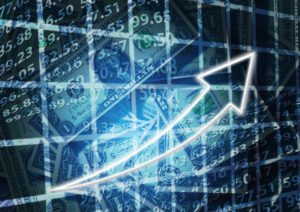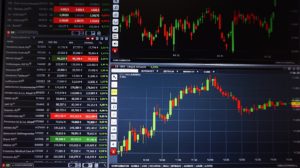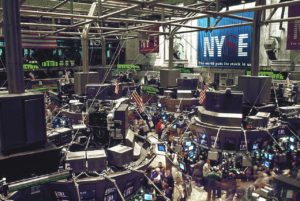 Day trading can be summarized simply as buying a security and quickly selling or closing out the position within a single trading day. Ideally, a day trader wants to “cash out” by the end of each day with no open positions to avoid the risk of losses by holding a security overnight. Day trading is not for everyone and carries significant risks. It requires an in-depth understanding of how the markets work and various strategies for profiting in the short term. Short term profits require a very different approach compared to traditional longer term, buy and hold investment strategies.
Day trading can be summarized simply as buying a security and quickly selling or closing out the position within a single trading day. Ideally, a day trader wants to “cash out” by the end of each day with no open positions to avoid the risk of losses by holding a security overnight. Day trading is not for everyone and carries significant risks. It requires an in-depth understanding of how the markets work and various strategies for profiting in the short term. Short term profits require a very different approach compared to traditional longer term, buy and hold investment strategies.
Why Be a Day Trader?
The objective of day trading is to profit from the daily price movement in liquid or volatile stocks, securities, options or indexes. The more price movement in the market or security, the more opportunities become available. Day traders do not focus on the long term direction in the market because they do not hold positions over long periods of time. They can adapt to whatever direction the market is headed at any given moment. A down market can provide just as many opportunities for profit as an up market on any given day. Day trading is not a way to get rich overnight. Done properly, it is a conservative investing approach that knowledgeable individuals do as a profession.
What is a Trade?
A trade is the action of buying or selling something of value (in this case, a security) in exchange for money. The system or network that facilitates the exchange is called a market. A trader can enter a trading position either long – by buying a security and hoping to sell later at a higher price; or short – by “borrowing” shares, then offering to sell them later at a lower price in a falling market. A day or intraday trader is looking to take advantage of price swings during the trading day. By closing all positions each day, there is no “overnight risk” caused by news and events that might occur after the markets are closed.
Is Day Trading Risky?
Day trading can actually be less risky than other forms of security trading. When trading positions are closed out each day, there is no additional overnight risk. Negative economic news, reduced earnings reports, world events and market events have no impact as profits (or losses) have already been locked in by the close of each trading day.
Do Day Traders Require Any Special Tools?
 Day traders rely on a combination of computers, monitors, routers, modems, and specialized software to keep up with modern markets. Level II trading service access is also a must which provides real-time quotations, bid and ask prices for individual markets. Level II is the highest level of information available to individuals who are not NASDAQ members or registered market makers.
Day traders rely on a combination of computers, monitors, routers, modems, and specialized software to keep up with modern markets. Level II trading service access is also a must which provides real-time quotations, bid and ask prices for individual markets. Level II is the highest level of information available to individuals who are not NASDAQ members or registered market makers.
Access to an electronic communication network (ECN) is also beneficial to avoid paying commissions to a broker for each trade. Memberships are fee-based and must be approved.
Additionally, traders normally monitor several real-time news outlets to keep up with any information that might affect the market or their positions. The cost of infrastructure, not including the development of customized software, can run thousands of dollars each month.
Some day traders forgo Level II and ECN access and instead rely on online brokerage accounts to execute trades and provide information. This strategy may appear cheaper, but generates brokerage fees for each trade transaction not to mention the risks associated with delayed information. Full-time day traders need immediate access to world news and global financial information. Minimizing transaction costs can be the difference between a profitable trade and a loss.
Is Anything Else Required?
- Knowledge and Experience: Individuals who attempt to day trade without a thorough understanding of market fundamentals often end up losing money – sometimes, everything.
- A Strategy: A trader needs an edge over the rest of the market. There are several different strategies that day traders utilize, including swing trading, arbitrage and trading news. These strategies are refined until they produce consistent profits and effectively limit losses.
- Sufficient Capital: Day traders should only use only risk capital – funds they can afford to lose. Not only does this protect them from financial ruin, but it also helps eliminate emotion from their trading. A large amount of capital is often necessary to capitalize effectively on a single day’s price movements.
What is the Best Way to Start Day Trading?
 Professional Day Traders work for large financial institutions. This is a great way to learn and gain valuable knowledge and experience. You can expect to be trained by professionals with access to all the latest tools, techniques and information. Professional traders are paid a base salary and then a bonus based on their trading performance. Institutional traders do not typically invest their own money. The institution provides the capital and the resources – and they keep any profits and absorb any losses. You have nothing at risk, except your job and your time.
Professional Day Traders work for large financial institutions. This is a great way to learn and gain valuable knowledge and experience. You can expect to be trained by professionals with access to all the latest tools, techniques and information. Professional traders are paid a base salary and then a bonus based on their trading performance. Institutional traders do not typically invest their own money. The institution provides the capital and the resources – and they keep any profits and absorb any losses. You have nothing at risk, except your job and your time.
Individual day traders simply trade with their own capital and technical resources. Few of them have access to a trading desk, and often rely on a broker and pay commissions to have their trades executed. Limited resources prevent them from competing directly with institutional day traders. Instead, they act on gut instinct rather than solid fundamental information and tend to take more risks.
Can I make a Living Day Trading?
Day trading is stressful. It requires monitoring multiple streams of information to spot trading opportunities and then reacting quickly to exploit them. Because of its short term duration, day trading is often misunderstood and has gained a reputation for being riskier and more volatile than other forms of market trading. Financial advisers and professional money managers look down on the concept of day trading. They argue that the risks are high and the rewards don’t justify trading on daily market swings. Others believe it to be a legitimate means of capitalizing on short-term trading patterns.
The Bottom Line
Although day trading has become somewhat of a controversial phenomenon, its prevalence is undeniable. Day traders, both institutional and individual, play an important role in the marketplace by keeping the markets efficient and liquid. While popular among inexperienced traders, it should be left primarily to those with the skills and resources needed to succeed.
